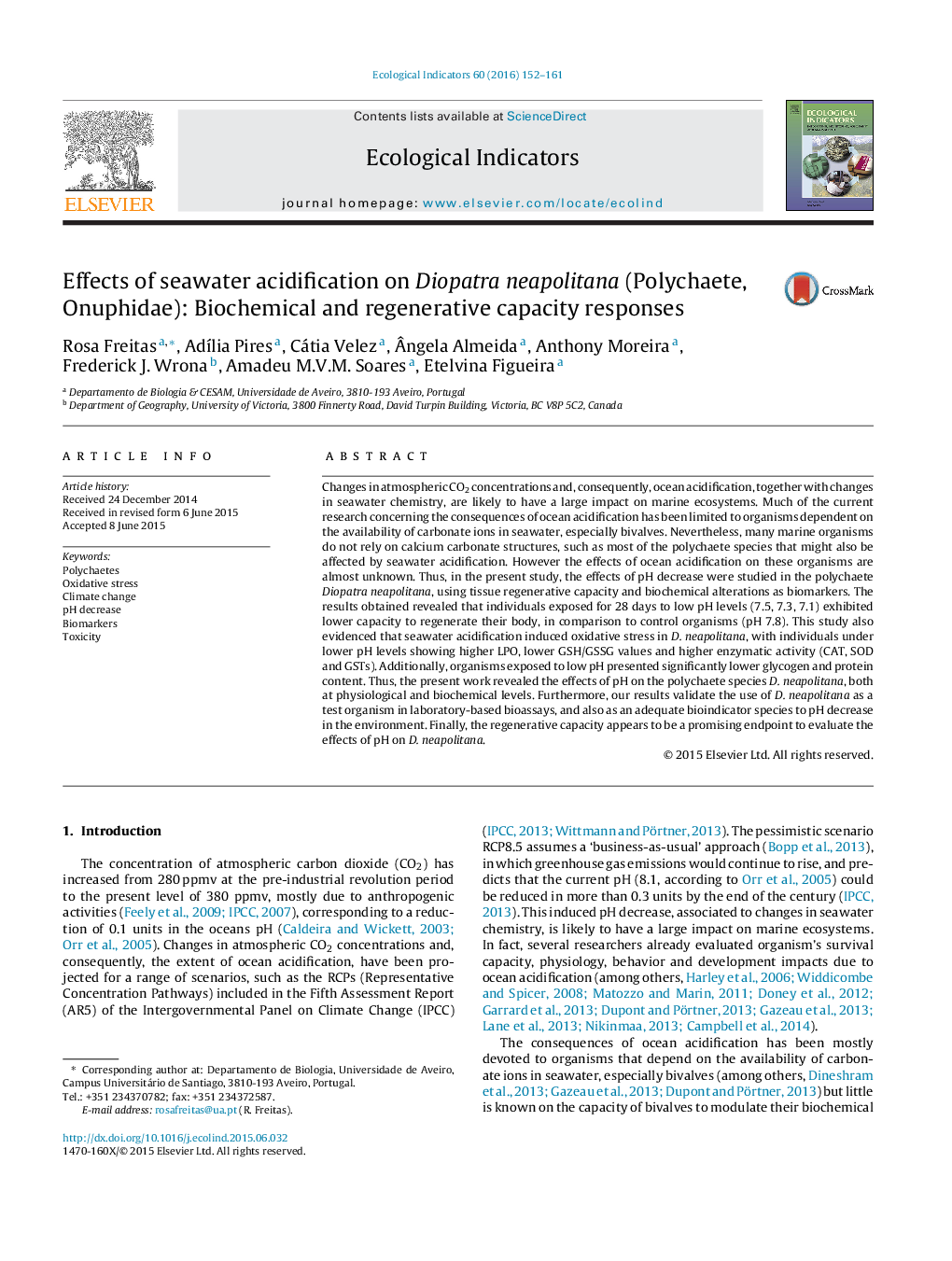| Article ID | Journal | Published Year | Pages | File Type |
|---|---|---|---|---|
| 6294002 | Ecological Indicators | 2016 | 10 Pages |
Abstract
Changes in atmospheric CO2 concentrations and, consequently, ocean acidification, together with changes in seawater chemistry, are likely to have a large impact on marine ecosystems. Much of the current research concerning the consequences of ocean acidification has been limited to organisms dependent on the availability of carbonate ions in seawater, especially bivalves. Nevertheless, many marine organisms do not rely on calcium carbonate structures, such as most of the polychaete species that might also be affected by seawater acidification. However the effects of ocean acidification on these organisms are almost unknown. Thus, in the present study, the effects of pH decrease were studied in the polychaete Diopatra neapolitana, using tissue regenerative capacity and biochemical alterations as biomarkers. The results obtained revealed that individuals exposed for 28 days to low pH levels (7.5, 7.3, 7.1) exhibited lower capacity to regenerate their body, in comparison to control organisms (pH 7.8). This study also evidenced that seawater acidification induced oxidative stress in D. neapolitana, with individuals under lower pH levels showing higher LPO, lower GSH/GSSG values and higher enzymatic activity (CAT, SOD and GSTs). Additionally, organisms exposed to low pH presented significantly lower glycogen and protein content. Thus, the present work revealed the effects of pH on the polychaete species D. neapolitana, both at physiological and biochemical levels. Furthermore, our results validate the use of D. neapolitana as a test organism in laboratory-based bioassays, and also as an adequate bioindicator species to pH decrease in the environment. Finally, the regenerative capacity appears to be a promising endpoint to evaluate the effects of pH on D. neapolitana.
Related Topics
Life Sciences
Agricultural and Biological Sciences
Ecology, Evolution, Behavior and Systematics
Authors
Rosa Freitas, AdÃlia Pires, Cátia Velez, Ãngela Almeida, Anthony Moreira, Frederick J. Wrona, Amadeu M.V.M. Soares, Etelvina Figueira,
